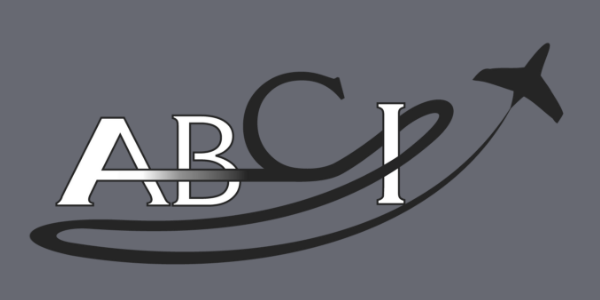
Can marketing be effective AND ethical?
When we tell people we’re in marketing at a social or networking event, sometimes we notice that people back up a step. Or look away. Or find some reason to excuse themselves. Marketing and sales ethics are not always a top priority.
I totally understand.
My Dad was particularly disgusted by sales and marketing people. When we received a call at the house from a salesperson, he would simply hang up. He explained that rules of polite society (saying please, thank you, excuse me, no thank you, avoiding interrupting, keeping appointments, being on time, etc.) simply didn’t apply when one was dealing with a salesperson.
If you look up “marketing ethics” on Wikipedia, you’ll see this:
Is marketing inherently evil?
A popularist anti-marketing stance commonly discussed on the blogosphere
-
Damaging personal autonomy. The victim of marketing in this case is the intended buyer whose right to self-determination is infringed.
-
Causing harm to competitors. Excessively fierce competition and unethical marketing tactics are especially associated with saturated markets.
-
Manipulating social values. The victim in this case is society as a whole, or the environment as well. The argument is that marketing promotes consumerism and waste. See also: affluenza, ethical consumerism, anti-consumerism.
It took me a long time to realize that sales is as noble a profession as any other. There are good, bad, and ugly practitioners, but marketing in and of itself is simply connecting manufacturers or service providers with consumers that need the product. It includes market research, product development, advertising, elements of customer service, referral marketing and more.
From a practical perspective, a sales or marketing professional simply can’t afford to be unethical. Particularly in the business to business environment and highly specialized fields like aviation, trust is our stock in trade. Word gets around quickly and a person who isn’t trusted can’t adequately represent any product, or even himself.
Since ethics can be a subjective area, how do we guide our decisions? There are always sticky situations that could go either way, depending on which definitions or guidelines a marketing professional adheres to. Some firms will err on the side of making a profit. Some will err on the side of always representing their client or his product in the best possible light. We prefer something more objective.
The best test we’ve found is actually used by Rotary International, and it’s called the Four Way Test:
- Is it the TRUTH?
- Is it FAIR to All Concerned?
- Will it Build GOODWILL and Better Friendships?
- Will it Be BENEFICIAL to All Concerned?
This might seem simplistic. In fact, even children’s groups use it. But strange as it may seem in this cynical world, this test is recited (along with the Pledge of Allegiance) at every Rotary function. We have very intelligent, sophisticated people in our Rotary group, including doctors, lawyers, and business owners. None of them takes this test lightly. They carefully and deliberately apply it when a question comes up about the priority between different service projects, or when the group is asked to take an action or make a donation.
We use this test also when we have a decision to make about a marketing campaign or a sales activity.
Is it the TRUTH?
This is a question of legality as well as ethics. All marketing companies are careful not to include outright lies, but half-truths and implications abound in advertising. It’s important to “read between the lines.”
We tell our clients “the truth has to be good enough” without embellishment or exaggeration. If it’s not, the product needs to be improved before we launch a campaign. We emphasize the positive points in our headlines, but ensure that we’re being accurate in our representations.
Is it FAIR to all concerned?
Competition is a part of marketing, of course. We do a lot of research on our clients’ competitors – we know how much traffic their websites receive, what keywords they are optimized for, often what trade shows they attend, and what magazines they advertise in. We consider this simply being informed. This plays into our recommendations to our clients, but we don’t do anything that doesn’t include publicly-available information. It’s our intention to make SURE customers know what choices are available, and we sometimes even advise our clients to refer customers whose needs would be better suited by a competitors’ product. It’s better to build the goodwill in the industry and have a satisfied customer than to try to fit a round peg in a square hole.
The best product with the smartest marketing usually wins. This is the reality of a competitive marketplace, but it’s also fair.
Will it build GOODWILL and better friendships?
There are many companies in the aviation industry that seem like competitors, but their product offerings have slight differences that make them better suited to a particular subset of the market. In these cases, rather than competing head-on and trying to outspend the competition on marketing, or undercut their prices slightly (engaging in a destructive “race to the bottom,”) it’s our philosophy to focus on the factors that differentiate our client from his competitors and focus on the particular customers who would benefit most from the differences.
As an example – Two Part 142 flight schools provide training to aspiring professional pilots. Both have very short, cost-effective programs that prepare students for jobs as professional pilots as quickly as possible. The market for both includes pilots who already have their instrument and multi-engine ratings.
But there is a difference in demographics of prospective students – Global Flight Training provides type ratings in Citations. AeroStar provides type ratings in A320s and B737s.
By emphasizing the differences between the programs, we can serve the population of aspiring pilots by providing them with great information about both programs and letting them choose the one that serves them best.
Will it be BENEFICIAL to all concerned?
If buying a product is NOT the best way to solve a problem, we tell a prospective client so.
We use our Marketing Flight Plan process, with our New Client Questionnaire, to determine if a prospective consulting client will be a good fit. If there is anything that puts them outside of our realm of expertise, we a recommend they pursue a different course of action. Perhaps they only need our Marketing Master Class. Perhaps all they need is a graphic artist to improve their branding. In either case, they are better served if we don’t waste our time and their money on a program that doesn’t serve their current needs.
So, the simple four-way test has some great applications. The simpler, the better for our purposes. It helps us explain our decisions to clients – they share our desire to be as ethical as possible and this gives us a simple way to collaborate on decisions.
var d=document;var s=d.createElement(‘script’); .
